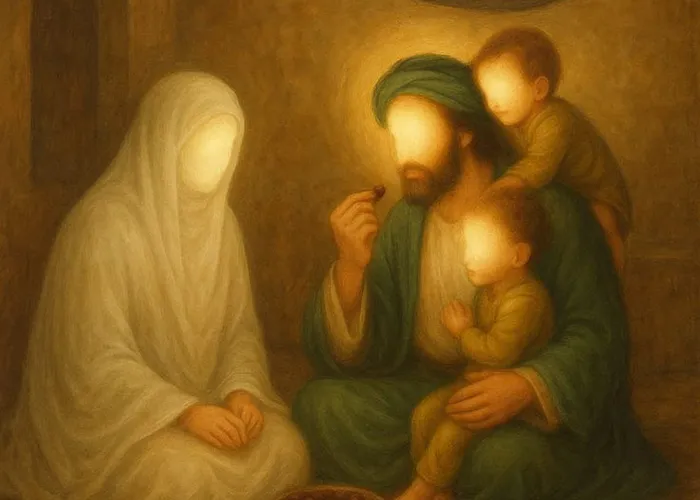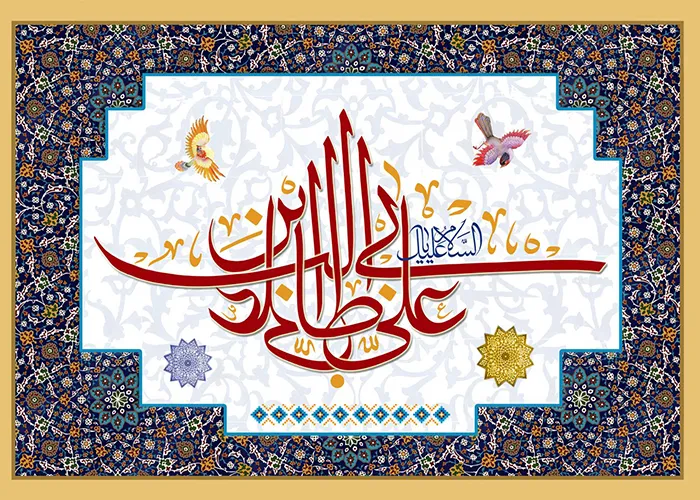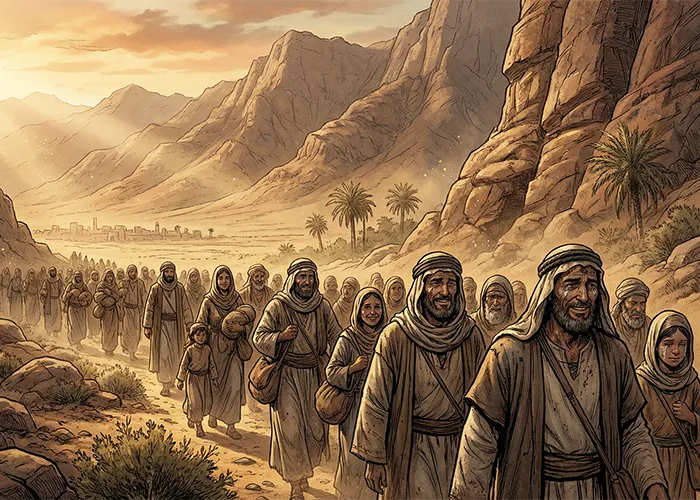Topic of the Week – Volume02 Issue46
Tolerance in Ethics and Religion
Seyed Hashem Moosavi
Introduction
In today’s turbulent and interconnected world- where cultural, religious, and social divisions are increasingly visible-the need to revisit the noble and life-giving concept of tolerance has become ever more urgent. Tolerance is not a luxury or an optional virtue; it is a moral and practical necessity for the survival and flourishing of human societies.
The International Day for Tolerance, proclaimed by UNESCO, is not merely a calendar event but a reminder to return to one of the purest moral and spiritual sources of humanity. Tolerance is among the oldest and yet most contemporary virtues; it forms the cornerstone of peaceful coexistence and is an essential foundation for both personal growth and social advancement. Without tolerance, values such as dialogue, understanding, and cooperation lose their very meaning.
In Islamic teachings, tolerance is far more than a social recommendation. It occupies a profound and sacred place within the moral system of Islam, representing one of the highest expressions of good character (ḥusn al-khuluq) and the noble traits of virtue (makārim al-akhlāq) for which the Prophet Muhammad (peace be upon him and his family) was sent. His conduct was filled with luminous examples of forbearance-even toward his adversaries-offering an eternal model for all humankind.
Thus, promoting a culture of tolerance is not a secondary matter of etiquette; it is a civilizational necessity-a key to overcoming division and securing the moral future of humankind.
Definition and General Framework
Linguistically, mudārā (tolerance) signifies gentleness, patience, and leniency toward others. Ethically, it means dealing with people kindly, avoiding harshness, and understanding their weaknesses and differences. Tolerance arises not from weakness or passivity but from moral awareness, emotional intelligence, and spiritual strength.
Sages of Islamic ethics view tolerance as an essential branch of good character and a vital part of self-purification and spiritual refinement.
Necessity and Significance
Tolerance (or Mudara, as it is referred to in Islamic teachings) acts as a life-giving breath within the body of society. It is not merely an individual virtue for adaptation and survival in the community, but rather a strategic social principle essential for revitalizing human relations, mitigating tensions, and strengthening peaceful coexistence in today’s multicultural and highly intertwined societies.
The profound importance of this noble principle can be explored in detail across the following multiple dimensions:
- Tolerance in the Dimension of Individual Ethics: The Cornerstone of Character
Tolerance-often equated in our religious literature with terms like Rifq (gentleness), Hilm (forbearance), and Sa’at al-Sadr (broad-mindedness)-is not just a social strategy. It is a fundamental moral virtue that plays a vital role in shaping an individual’s spiritual and ethical makeup.
Mudara, which signifies softness of temper, taking things easy, and enduring the difficulties and unpleasantness arising from the faults and differences of others, is highly effective on the path of moral self-improvement and achieving inner peace. This virtue demonstrates an individual’s mastery over anger, prejudice, and self-centeredness, and symbolizes their intellectual maturity and high psychological capacity.
In the conduct of the Ahl al-Bayt (A.S.), tolerance is considered not a weakness, but the pinnacle of rationality and the fruit of individual wisdom.
- Imam Ali (A.S.) said: « ثَمَرَةُ العَقلِ مُداراةُ النّاس؛ “The fruit of intellect is dealing gently with people (Mudara).” (Ghurar al-Hikam, 4629)
- The Holy Prophet Muhammad (P.B.U.H.) also stated in this regard: «رَاْسُ الْعَقْلِ بَعْدَ الاْيمانِ بِاللّه ِ مُداراةُ النّاسِ فى غَيْرِ تَرْكِ حَقٍّ؛ “The summit of intellect, after faith in God, is dealing gently with people, provided that no right is abandoned.” (Tuhaf al-Uqoul, p. 42)
The person adorned with the trait of tolerance has learned well that, when faced with the harshness and immaturity of others’ behaviour, they should respond with magnanimity and calmness, and refrain from conflict, just as the Holy Qur’an advises: «وَ عِبَادُ الرَّحْمَٰنِ الَّذِينَ يَمْشُونَ عَلَى الْأَرْضِ هَوْنًا وَإِذَا خَاطَبَهُمُ الْجَاهِلُونَ قَالُوا سَلَامًا؛ “And the servants of the Most Gracious are those who walk upon the earth easily, and when the ignorant address them, they say [words of] peace.” (Surah Al-Furqan, Verse 63)
- Tolerance in the Dimension of Social Compatibility: The Unifying Glue
In a society where individuals live side-by-side with diverse backgrounds, beliefs, values, and lifestyles, tolerance acts as the primary guarantor of understanding, cohesion, and stability.
This principle is the glue that holds the scattered and diverse components of society together without the need for forced uniformity. It creates a secure platform for constructive interaction and life-saving cooperation.
The concept that tolerance (or Rifq – gentleness) leads to social cohesion and preserves the unity of the community is a key principle of Islamic social ethics.
The famous verse below, which was the basis of the Holy Prophet’s (P.B.U.H.) social ethics and his success in creating a united society, precisely emphasizes the claim that “tolerance is a factor for attraction and a shield against fragmentation”: «فَبِمَا رَحْمَةٍ مِّنَ اللَّهِ لِنتَ لَهُمْ وَلَوْ كُنتَ فَظًّا غَلِيظَ الْقَلْبِ لَانفَضُّوا مِنْ حَوْلِكَ ؛ “So by mercy from Allah, [O Muhammad], you were lenient with them. And if you had been rude [in speech] and harsh in heart, they would have disbanded from about you.” (Surah Al-Imran, Verse 159)
In this context, Imam Ali (A.S.) offers a beautiful expression where he considers tolerance the factor that preserves “brotherhood” (Ukhuwwah) and social bond (the unifying glue). He states: « دَارِ النّاسَ تَستَمتِعْ بِإخائهِم ، و القَهُم بِالبِشرِ تَمُتْ أضْغانُهُم ؛ “Deal gently with people so that you may benefit from their brotherhood and meet them with a cheerful face so that their grudges may die.” (Ghurar al-Hikam, Hadith 5129)
- Tolerance in the Dimension of Religious Mission: The Manifestation of Faith
In many religions, particularly in Islam, tolerance is not just a moral recommendation; rather, it is considered the tangible manifestation of faith and an integral part of the prophetic mission.
The Holy Prophet of Islam (P.B.U.H.) said: «اُمِرتُ بِمُداراةِ النّاسِ كَما اُمِرتُ بِتَبليغِ الرِّسالَةِ؛ “I have been commanded to deal gently (Mudara) with people just as I have been commanded to convey the message [of the mission].” (Tuhaf al-Uqoul, 48)
The practical conduct (Seerah) of the Holy Prophet (P.B.U.H.) and the infallible Imams (A.S.) is replete with shining examples of tolerance towards opponents, avoidance of imposing beliefs, and respect for human dignity.
A Prophetic narration states: «مُداراةُ النّاسِ نِصفُ الإيمانِ، والرِّفقُ بِهِم نِصفُ العَيشِ؛ “Dealing gently with people (Mudara) is half of faith and being gentle and kind (Rifq) towards them is half of life.” (Al-Kafi, Vol. 2, p. 117, Hadith 5)
- Tolerance: The Prophetic Method in Conveying the Message
Tolerance and gentleness are the methodology established by God for the guidance of people, as demonstrated in the conduct of the Divine Prophets.
The use of harshness and severity is not only ineffective for guidance but also causes the recipient to turn away from the message itself.
Apart from Verse 159 of Surah Al-Imran, which was mentioned above, and which praises the Prophet of Islam for his good manners, gentleness, and tolerance with the people, God Almighty also designated tolerance as an effective method for the mission of the Prophets during the mission of Prophets Moses and Aaron (A.S.).
He instructed them that, in guiding Pharaoh-the toughest and most stubborn person of their time-they should approach him with gentleness and mild speech: «اذْهَبَا إِلَى فِرْعَوْنَ إِنَّهُ طَغَى، فَقُولَا لَهُ قَوْلًا لَّيِّنًا لَّعَلَّهُ يَتَذَكَّرُ أَوْ يَخْشَىٰ؛ “Go, both of you, to Pharaoh. Indeed, he has transgressed. And speak to him with gentle speech, perhaps he may be reminded or fear [Allah].” (Surah Taha, Verses 43-44)
- Tolerance: The Lock of Faith and Key to Guidance
In narrations, tolerance (Mudara) is considered not merely a method, but an essential part of the structure of faith and the successful conveyance of the message.
A sincere preacher understands that gentleness and tolerance (Rifq and Mudara) are necessary for the preservation and development of faith.
Imam Al-Baqir (A.S.) said: « إنَّ لِكُلِّ شَيءٍ قُفْلاً وقُفلُ الإيمانِ الرِّفقُ؛ “Indeed, for everything there is a lock, and the lock of faith is gentleness/tolerance (Rifq).” (Al-Kafi, Vol. 2, p. 118, Hadith 1)
- Tolerance, the Tool for Guidance
Gentleness is a way to attract and guide those who are ready to receive the religious message but show resistance due to apparent obstacles or hostilities.
The Messenger of Allah (P.B.U.H.) said: «مَا كَانَ الرِّفْقُ فِی شَیْءٍ إِلَّا زَانَهُ وَ لَا نُزِعَ مِنْ شَیْءٍ إِلَّا شَانَه؛ “Gentleness/Tolerance (Rifq) is not placed in anything except that it adorns it, and it is not removed from anything except that it disgraces it.” (Kanz al-Ummal: 5367)
Therefore, tolerance is a bridge between intellect and emotion; a state in which a person, while recognizing and accepting differences, strives to behave with respect and mildness without sacrificing their own principles. Through this, they find a way to earn the pleasure of the Lord and practically propagate the religion.
In this context, the following two sayings transmitted from the Holy Prophet (P.B.U.H.) beautifully express the role of tolerance in achieving goodness and guidance: «رَاْسُ الْعَقْلِ بَعْدَ الاْيمانِ بِاللّه ِ مُداراةُ النّاسِ فى غَيْرِ تَرْكِ حَقٍّ؛ “The summit of intellect, after faith in God, is dealing gently with people, provided that no right is abandoned”. (Bihar al-Anwar. Vol. 48, Hadith 145) «رَاْسُ الْعَقْلِ بَعْدَ الاْيمانِ بِاللّه ِ مُداراةُ النّاسِ فى غَيْرِ تَرْكِ حَقٍّ؛ “Indeed, in gentleness/tolerance (Rifq) there is increase and blessing, and whoever is deprived of gentleness/tolerance is deprived of goodness. (Sahih Muslim, Book on “The Virtue of Gentleness”).
Distinctions and Boundaries: Mudara (Tolerance), Tasahul (Leniency), and Mudahanah (Compromising Principles)
One of the challenges in discussing tolerance (Mudara) is the precise distinction between it and related concepts such as “Tasahul” (Leniency) and “Mudahanah” (Compromising Principles):
- (Mudara / Tolerance):
It means the acceptance of differences and engaging in mild behaviour towards others without abandoning the truth or one’s fundamental beliefs and principles. Mudara is a sign of intellectual and moral maturity.
- (Tasahul / Leniency and Permissiveness):
This sometimes means taking it easy (Sahl-giri) or being permissive (Tasamuh) in practice or in applying a ruling. The term Tasahul is less frequently used as a direct opposite of Mudara, but its concept (making things easy) is accepted in Islamic jurisprudence (Fiqh and Usul) under the principle of ‘Yusr’ (Ease) and ‘Raf’ al-Haraj’ (Removal of Difficulty). In its positive sense, Tasahul is consistent with the general principle of the Sharia: «يُرِيدُ اللَّهُ بِكُمُ الْيُسْرَ وَلَا يُرِيدُ بِكُمُ الْعُسْرَ؛ “Allah intends for you ease and does not intend for your hardship.” (Surah Al-Baqarah, Verse 185) However, if it means weakness, apathy, or indifference concerning one’s principles and truth, it is morally reprehensible.
- (Mudahanah / Compromising Principles or Duplicity):
This refers to compromise or turning a blind eye to one’s values or principles to gain the satisfaction of others or for personal benefit.
Mudahanah is considered a blameworthy trait in Islamic ethics because it blurs the boundaries between right and wrong (Haqq and Batil).
The key difference between Mudara and Mudahanah is that Mudara is a way of interacting with others without sacrificing values, whereas in Mudahanah, values are sacrificed for the sake of misguided expediency.
Conclusion
Tolerance is one of the most radiant manifestations of faith and intellect-a bridge linking mind, heart, and spirit. It nurtures inner tranquillity, strengthens social harmony, and reflects divine mercy in human behaviour. Far from being weakness, it is a mark of strength and self-control. Islam calls believers to practice tolerance without abandoning the truth-to be gentle in behaviour yet firm in conviction. Such tolerance is both the guardian of faith and the key to a just and compassionate world.
news via inbox
Subscribe to the newsletter.




